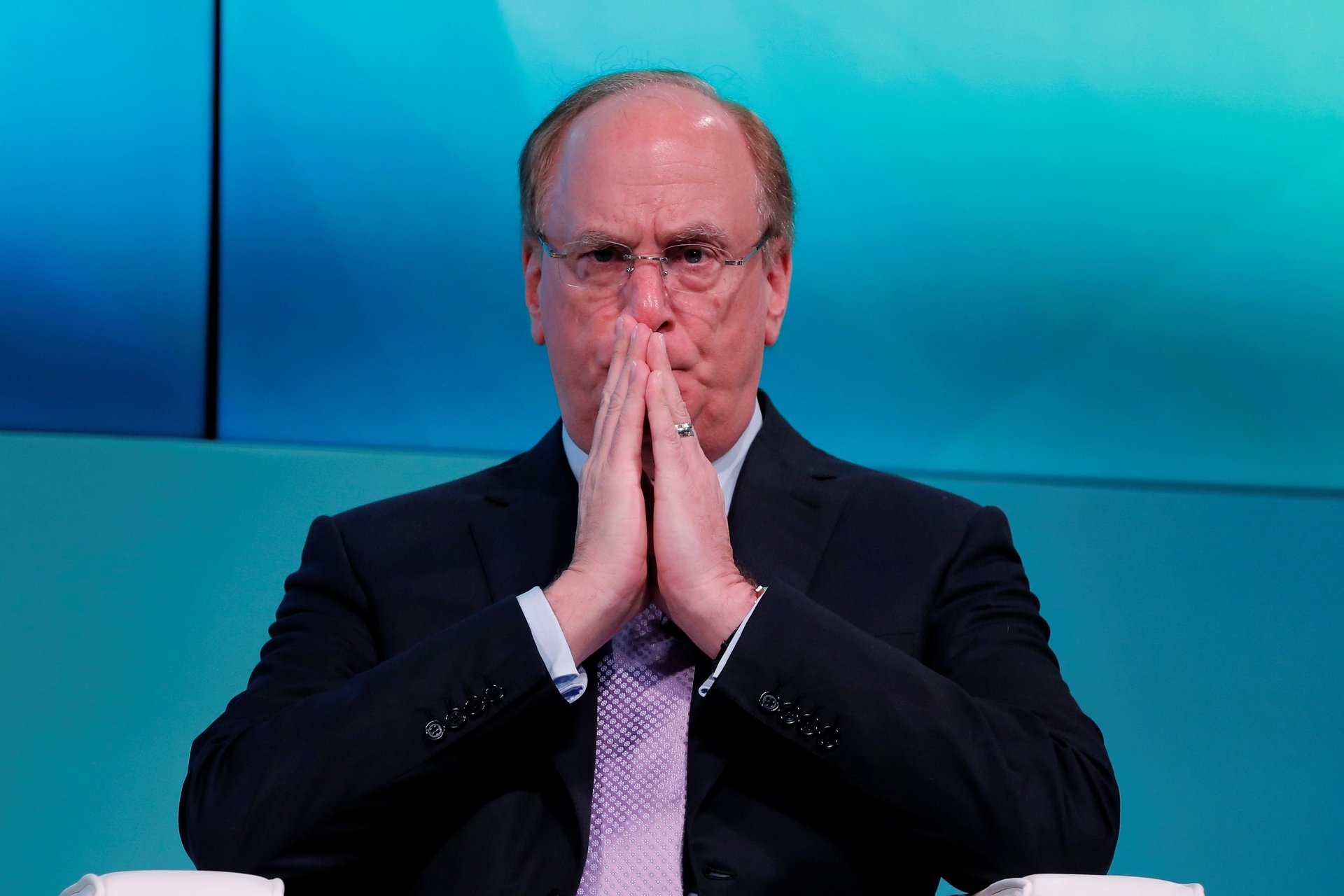BlackRock’s climate actions are so milquetoast they’re making no one happy
The asset manager is under fire from both climate activists and anti-ESG crusaders

The world’s biggest asset manager can’t seem to please anyone.
Over the last week, BlackRock has come under fire from both Republican anti-ESG crusaders in the US Congress for taking too much action on climate change, and from an activist investor in the firm for taking too little.
Larry Fink, the firm’s CEO, is in a tricky position. Ignoring climate change is clearly an imprudent and untenable fiscal decision. As a major investor, BlackRock is in a position to encourage managers of companies in which it is invested to weight the short- and long-term financial implications of their carbon footprints, and to park its money preferentially in low-carbon companies.
But any such steps to act on climate, in however mild a fashion, risk provoking a vocal political contingent with the power to withdraw large sums of money from the firm’s management.
BlackRock is too green
On Dec. 1, Florida pulled $2 billion in state investments from BlackRock. The state’s financial officer, Jimmy Patronis, said in a statement that “using our cash to fund BlackRock’s social-engineering project isn’t something Florida ever signed up for.” Earlier in the year, Louisiana and Missouri together pulled out $1.3 billion, making a similar complaint. Texas has put the firm on a blacklist, barring it from managing its pensions and other public funds, claiming that BlackRock is biased against fossil fuel companies.
On Dec. 6, a report from Republican staffers in the House Banking Committee accused BlackRock of using its sway with companies to promote a “liberal political agenda” and called for an investigation into how the firm influences corporate climate-action plans. The report is toothless for now, but it could bring on headaches for BlackRock once Republicans control the House next year.
BlackRock isn’t green enough
The next day, Dec. 7, a small London-based investment firm called Bluebell issued a tirade against Fink, complaining about the “reputational risk (including green-washing risk) to which [he has] unreasonably exposed the company, potentially fueling a gap between the ‘talk’ and the ‘walk’ on ESG,” and calling for his ouster. Bluebell owns only about 0.01% of BlackRock shares, but it managed to wage a successful campaign last year to oust the chairman of Danone, the food multinational, also over sustainability concerns.
And back in September, New York State’s comptroller said he was reviewing whether to withdraw $43 billion in pension funds from BlackRock because it isn’t doing enough to push companies to cut their emissions.
What BlackRock has done on climate change
The anti-ESG cohort’s claims don’t really match BlackRock’s actual record. It’s true that the company has pledged to reach net zero emissions across its holdings by 2050. In April, BlackRock said that it expects 75% of its assets to be on track for that goal by 2030. In a letter to CEOs in February, Fink argued that managing climate risk is key to companies’ long-term profitability and investor returns, and that the next generation of “unicorn” startups will be those “that help the world decarbonize.”
But BlackRock is, by far, also the top institutional investor in fossil fuels, holding about $133 billion in shares and bonds of the top oil and gas companies, and at least $85 billion in coal. Fink has been unequivocal that he does not support divestment from oil and gas companies, and a coal divestment plan that the firm announced in 2020 is laced with loopholes. During the 2022 proxy voting season, BlackRock supported just 22% of environmental and social shareholder proposals, down from 47% the year before, precisely because many were “too prescriptive” on how companies should manage climate risk.
As long as Republican governments control the purse strings on big pension funds and have the power to haul Fink in for performative hearings, he seems keen to err on the side of appeasing them. But that may not be tenable forever, if more of BlackRock’s own shareholders or asset owners line up behind the likes of Bluebell and New York State.
On Dec. 8, BlackRock’s peer Vanguard dropped the pretense of climate leadership and withdrew from a prominent coalition of net zero-oriented financial institutions, possibly to keep the anti-ESG heat off its back. BlackRock is still a member—but if it’s serious about decarbonizing the economy, it has to be willing to take a bit more of that heat.